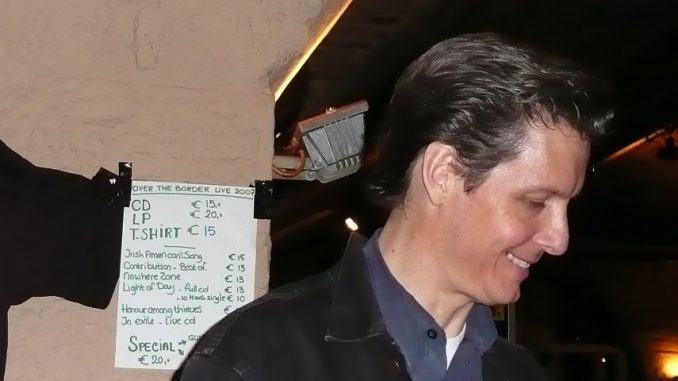
Mise à jour de cette note publiée initialement publiée le 7 mai 2007.
Si besoin était, la première partie est ICI !
![]()
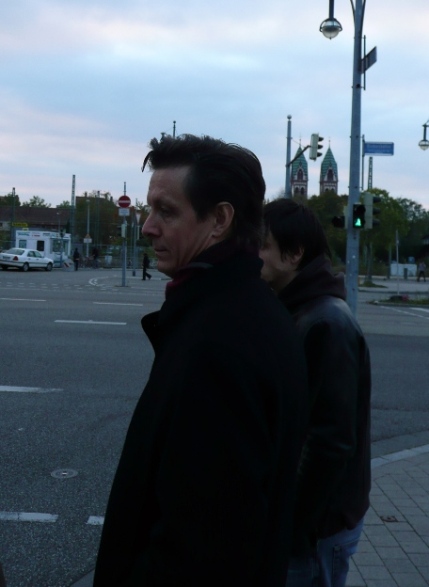
Une deuxième partie ! Tout simplement car il est certain qu’aller se balader (*) sur le champ de la bataille de Gettysburg, – l’une des plus sanglantes batailles de la guerre de Sécession -, y lire son patronyme sur une stèle et composer une chanson à la force majestueuse, n’est pas chose banale. Même si les ricains disent qu’ils ont tous un ancêtre mort à Gettysburg.
C’est d’ailleurs le thème des premières lignes de la chanson phare de Honor Among Thieves (“Gettysburg”), le premier album des Brandos.
Étonné, j’ai posé à Dave Kincaid la question afin de savoir définitivement ce qu’il en était de l’anecdote relatée au premier couplet (On a cold october’s day / The battlefield of Gettysburg / On a plaque I read my name / The wheel of time begin to turn).
Sa réponse : “The lyric from Gettysburg is based on a true story. In October 1986, I visited the battlefield for the first time. On the eastern side of the field, or the federal side (Cemetery Ridge), there is a huge monument to all the soldiers from the state of Pennsylvania who fought there. On this monument is a plaque for each regiment from the state, with the names of each soldier there that day. My great-great grandfather, James McCormick Kincaid, fought with the 63rd Pennsylvania Volunteer Infantry for almost the entire war, and his name is on this plaque. When I went there the first time I didn’t know this, and was astounded to find him there. Everyone asks if he survived the battle, to which I always say “yes, otherwise I wouldn’t be here now.” (1) Pour tout dire ; son arrière grand-père avait servi dans le 63rd Pennsylvania Volunteers Infantry.
De même, j’ai été effaré par le chiffre qu’il annonce dans le morceau : 50000 morts (“I saw fifty thousand die”). Bien sûr le chiffre est énorme. Mais c’est le résultat la vision qui saisit Dave lorsqu’il se trouve sur le champs de bataille et devant le mur où sont gravés les noms de tous les soldats de l’état de Pennsylvanie présents – dont celui de son grand-père – lors des trois jours d’affrontements à Gettysburg, tournant décisif de la Guerre de Sécession et son issue. Or, les historiens nous disent que le compte est bon (à peu de choses près). Car pour pour l’Union : 3 070 tués, 14 497 blessés et 5 434 prisonniers ou disparus. Pour les Confédérés, on dénombre 2 592 tués, 17 206 blessés et 5 150 prisonniers ou disparus. Soit un total de 47 949 pauvres gars.
Pour en revenir à nos moutons, pas étonnant dans ce contexte que Planxty et les Chieftains figurent au nombre de ses grandes influences.
De même pour Otis Redding. Si l’on écoute bien le chant de D.K., il y a bien quelque chose dans le timbre qui rappelle “The Big O”.
Quant à moi, de très nombreuses références font ma joie. Exemples : “Pinball Wizard” (quelle face A !, merci les Pretty Things), Paul Rogers (quel chanteur !, mon pote le chevrier est fan), Dylan et Robbie Robertson (quelle splendeur que les Basements Tapes -ex-Great White Wonder), C.C.R. (quelle usine à standards) et les Beatles (quel héritage colossal, et puis I Feel Fine est un morceau que j’arrive à jouer en ne faisant que 15 fausses notes !).
Mais là, c’est mon histoire. Est-ce vraiment ce que vous êtes venus cherchez dans cette note ??? …
Ouèche !
Professor BeeB HôPô
(1) Tentative de traduction : “Les paroles de Gettysburg sont basées sur une histoire vraie. En octobre 1986, je suis allé sur le champ de bataille pour la première fois. Du côté est du champ, ou du côté fédéral (Cemetery Ridge), il y a un immense monument dédié à tous les soldats de l’État de Pennsylvanie qui ont combattu dans cette ville. Sur ce monument se trouve une plaque pour chaque régiment de l’État, avec les noms de chaque soldat présent ce jour-là. Mon arrière-arrière-grand-père, James McCormick Kincaid, a combattu avec la 63ème Infanterie volontaire de Pennsylvanie pendant presque toute la guerre et son nom figure sur cette plaque. Quand je suis allé là-bas la première fois, je ne le savais pas et j’étais stupéfait de l’y trouver. Tout le monde me demande s’il a survécu à la bataille, je réponds toujours “oui, sinon je ne serais pas ici maintenant”.”
PS : N’empêche que c’est pas tout le monde qui a reçu un mêle comme ça, le jour de son anniversaire : “First of all, many thanks for your kind words on The Brandos music, albums, etc. It’s always very gratifying to us when people tell us that our music helps them get by, that’s why we do this… And thanks for your interview, there are some good (and difficult) questions there. […] Thanks again for your interest and support of The Brandos, Ernie and I are both very grateful to have fans like yourself.”
All the best,
Dave Kincaid
The Brandos
Je ne dirai rien de mon émotion.
![]()
Interview Dave Kincaid (2ème partie)
17) Your ten best songs :
1. I Feel Fine 2. Norwegian Wood 3. Pinball Wizard 4. Bad Moon Risin’ 5. Behind Blue Eyes 6. Paddy’s Lamentation 7. Who’ll Stop the Rain 8. Honky Tonk Women 9. The Dock of the Bay 10. Penny Lane
18) Your ten best songwriters :
1. Paul McCartney 2. John Lennon 3. John Fogerty 4. Pete Townshend 5. The Doors6. Bob Dylan 7. Robbie Robertson 8. Jagger/Richards 9. Ian Anderson 10. Otis Redding/Steve Cropper
19) Your ten best singers :
1. John Fogerty 2. Robert Plant 3. Ray Charles 4. Paul McCartney 5. John Lennon 6. Ian Anderson 7. Otis Redding 8. Roger Daltrey 9. Paul Rogers 10. Aretha Franklin
19) Your favourite hobbies : History (American Civil War), Language (Spanish)
20) How did you learn music and learn guitar and mandolin :
I learned the way most rock ‘n rollers did: by ear – listening and watching, and just getting out and playing (no matter how badly) whenever possible.
21) Your greatest musical influences :
The Beatles, The Who, Creedence Clearwater Revival, Led Zeppelin (Led Zeppelin II through Houses of the Holy), Santana (1st three albums), Woodstock (album & movie), The Ventures, The Chieftans, Planxty, J. S. Bach.
22) Four or five words to describe your personality : sensetive, artistic, moody, kind, intense
23) The Civil War is something very important for you. Why ? :
I don’t really have a logical explanation. From the time I was pretty young I found it to be fascinating. I used to sit for hours looking through the photographs and reading about it in a big book we had on it at home. That war was a period of intense passion, you could see it pouring out of the photographs, on the expressions on people’s faces. It has, of course, great significance in our country, but also for much of the rest of the world.
24) Whose the greatest band (except the Brandos !) ?
The Beatles
25) Your greatest satisfaction (in career and/or life) ?
Finishing a song.
26) If everything could be replay,what will you not doing again ?
The Brandos had some very bad managers in the past – we’d never hire them now…
27) Your best masterwork in art (pictures, paintings, sculptures, etc.) :
Roman-Greek Classical Sculpture, ‘The Dying Galatea (Gaul)” being a favorite.
28) What is France for you? Do you expect to come here? Is there a chance to see the group in this country ?
France for me is the wonderful country that produced the delectable Audrey Tautou – need I say more?… We did a short tour in France as support for Willy DeVille in 1993, and we certainly hope there will be a chance to play there again.
29) When in Europe, the Brandos tours in Germany, Belgium or Nederland. Why never in France, Spain or Italy?
If it were only up to us, we’d play in every country in the world. A band has to have real releases of their albums and serious promotion to play in any specific country. When those things happen a band receives invitaions to play there. We’re just hoping for all the right things to happen, and then for the invitations…
![]()

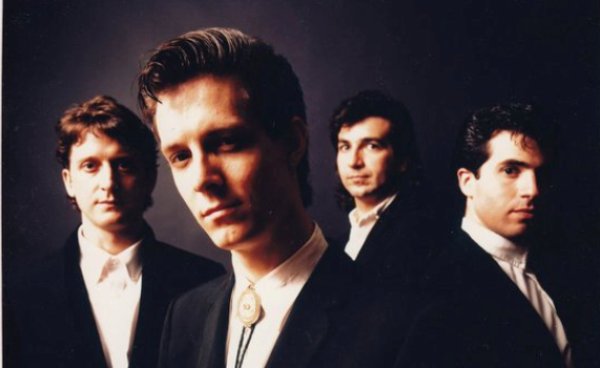
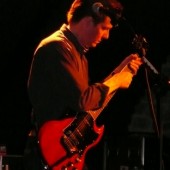
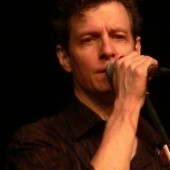
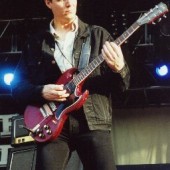
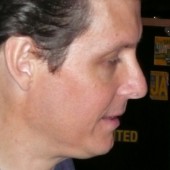
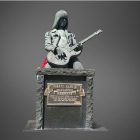

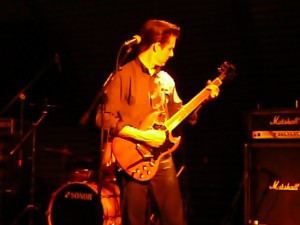
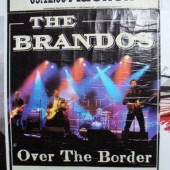

Soyez le premier à commenter